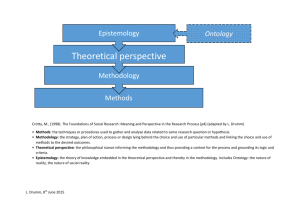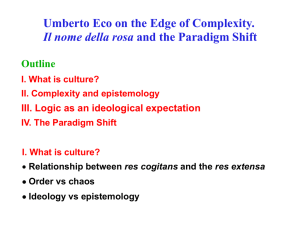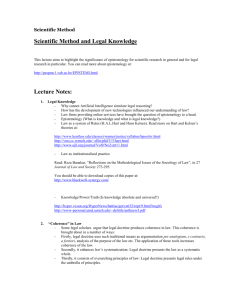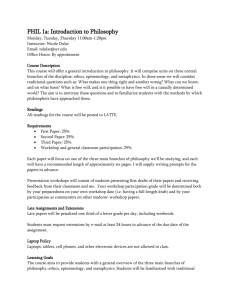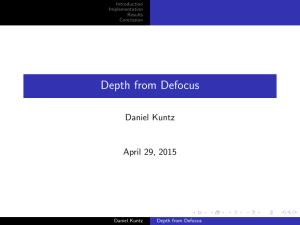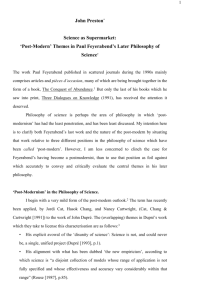UD1b: Epistemology of science La breve storia della teoria atomica
advertisement
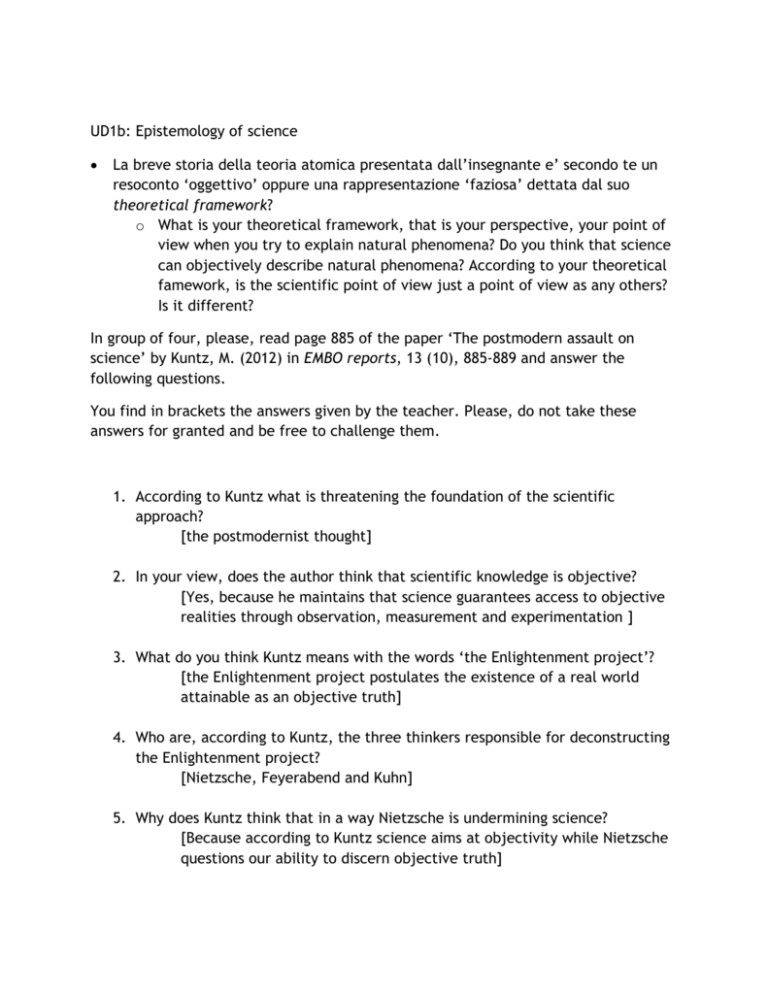
UD1b: Epistemology of science La breve storia della teoria atomica presentata dall’insegnante e’ secondo te un resoconto ‘oggettivo’ oppure una rappresentazione ‘faziosa’ dettata dal suo theoretical framework? o What is your theoretical framework, that is your perspective, your point of view when you try to explain natural phenomena? Do you think that science can objectively describe natural phenomena? According to your theoretical famework, is the scientific point of view just a point of view as any others? Is it different? In group of four, please, read page 885 of the paper ‘The postmodern assault on science’ by Kuntz, M. (2012) in EMBO reports, 13 (10), 885-889 and answer the following questions. You find in brackets the answers given by the teacher. Please, do not take these answers for granted and be free to challenge them. 1. According to Kuntz what is threatening the foundation of the scientific approach? [the postmodernist thought] 2. In your view, does the author think that scientific knowledge is objective? [Yes, because he maintains that science guarantees access to objective realities through observation, measurement and experimentation ] 3. What do you think Kuntz means with the words ‘the Enlightenment project’? [the Enlightenment project postulates the existence of a real world attainable as an objective truth] 4. Who are, according to Kuntz, the three thinkers responsible for deconstructing the Enlightenment project? [Nietzsche, Feyerabend and Kuhn] 5. Why does Kuntz think that in a way Nietzsche is undermining science? [Because according to Kuntz science aims at objectivity while Nietzsche questions our ability to discern objective truth] 6. Why does Kuntz think that in a way Feyerabend is undermining science? [Feyerabend argues that the idea of science as a system of knowledge production provided with universal methodological rules is not real. Rather science is characterised by a sort of epistemological anarchy where ‘anything goes’] 7. What does the word epistemological mean? [An epistemological issue concerns the question of what is or what should be regarded as acceptable knowledge] 8. What does epistemology mean? [Epistemology is the theory of knowledge. It questions what knowledge is and how it can be acquired (from Greek epistēmē, meaning knowledge, understanding, and logos, meaning "study of"). The typical questions asked in epistemology are: What can we know? How can we know it?] 9. What do we mean by epistemology of science? [The epistemology of science is the theory of scientific methodologies. Namely, it is the theory that tries to understand what the scientific knowledge is and how we can acquire it. The typical questions asked in epistemology are: Why do we consider a statement , but not others, as scientific? How do we acquire scientific knowledge? Is scientific knowledge possible? Can scientific knowledge be certain? How can we differentiate truth from falsehood? Why do we believe in certain claims and not others?] 10. Why Kuhn is seen as undermining the pretention that science understands reality? [Because in his view science is not a gradual process of accumulation of knowledge. Rather, it is periodically subject to a paradigm shift which overwhelms outdated theories] 11. Why ‘Strong sociology’ is seen as undermining the pretention that science understands reality? [Because from the Strong sociology point of view both accepted and non accepted scientific ‘theories’ should be treated equally. In fact, both of them are the product of social human activities, such as the allegiance to a shared paradigm that is necessary to be accepted in a scientific community] 12. Why the thinkers Bruno Latour and Ian Hacking are labelled by Kuntz as deconstructionists? [Because Bruno Latour and Ian Hacking see the scientific claims as expressions of a culture among others. In other words, the scientific claims are considered social constructions with political connotations and agendas as well. As a consequence, according to Bruno Latour and Ian Hacking, science is not an objective account of natural phenomena. Rather, it is a possible interpretation of the natural phenomena]



